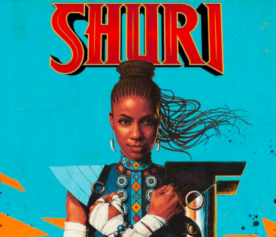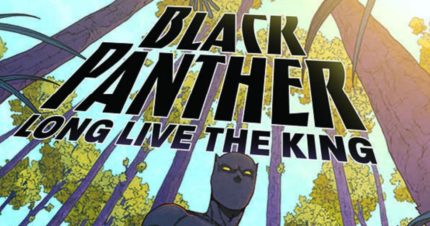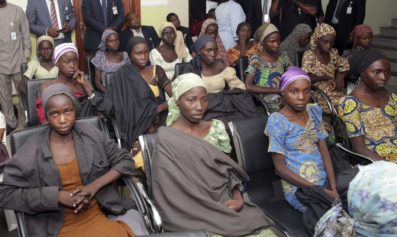The Chibok Girls have inspired a groundbreaking new series from Marvel.
“Blessing in Disguise” is the first nonfictional Africa-based comic from the iconic brand. Famous for the “Black Panther” series, which is set in the fictional nation of Wakanda, Marvel’s new lineup is set in Nigeria with a local heroine named Ngozi.
The young woman’s story takes place in the “Venomverse” series where she fights alongside “Black Panther,” who has a live-action flick coming out next year.
A preview page of my 8 -page short, “Blessing in Disguise”. pic.twitter.com/CN49zqRKyq
— Nnedi Okorafor, PhD (@Nnedi) September 6, 2017
“It was an important decision for me to base Ngozi on the one of the Chibok girls,” said Naijamerican series author Nnedi Okorafor, Ph.D., to the Thomson Reuters Foundation Tuesday, Sept. 12.
The Chibok girls are a group of 276 schoolgirls from Chibok, Nigeria, who were abducted in 2014 by Boko Haram, an Islamic extremist group. Though some have been released in the past two years, as of May, there were still 113 girls missing, according to the Associated Press.
Related: More On Chibok Girls
82 Freed Chibok Schoolgirls Arrive In Nigeria’s Capital
“They were normal girls who suddenly had to deal with a huge change in their lives … and their story of perseverance is so powerful,” Okorafor said. “Like many Nigerian girls, Ngozi comes in a small package but is strong-willed and determined.”
And determined fans have been buzzing about the revolutionary comic series.
Amazing!!!!! Congratulations and keep putting positive images of us in forefront.
— Allen Bird (@bird_man67) September 11, 2017
Love it! More! More!
— Grand Supreem (@GrandSupreem) September 13, 2017
outstanding concept… love it, I’ll spread the word accordingly…
— Cicero J. Gilreath (@xophoto) September 13, 2017
I want to read this like now. Thank you!
— Sam Dango (@Samdangos) September 6, 2017
With her barrier-breaking work, award-winning Okorafor told BuzzFeed she aims to inspire other Naija writers.
“I want young Nigerians to take away that all of these things are possible,” she said in August. “That our stories are important and can be told in multiple media forms. We can have a story in Marvel that tells a story about Nigerians, by Nigerians.
“I’ve come across a lot of African artists and writers who felt they won’t be successful if they tell their own stories unless they tell it in a specific way, and I really want young creatives to get away from that.”


